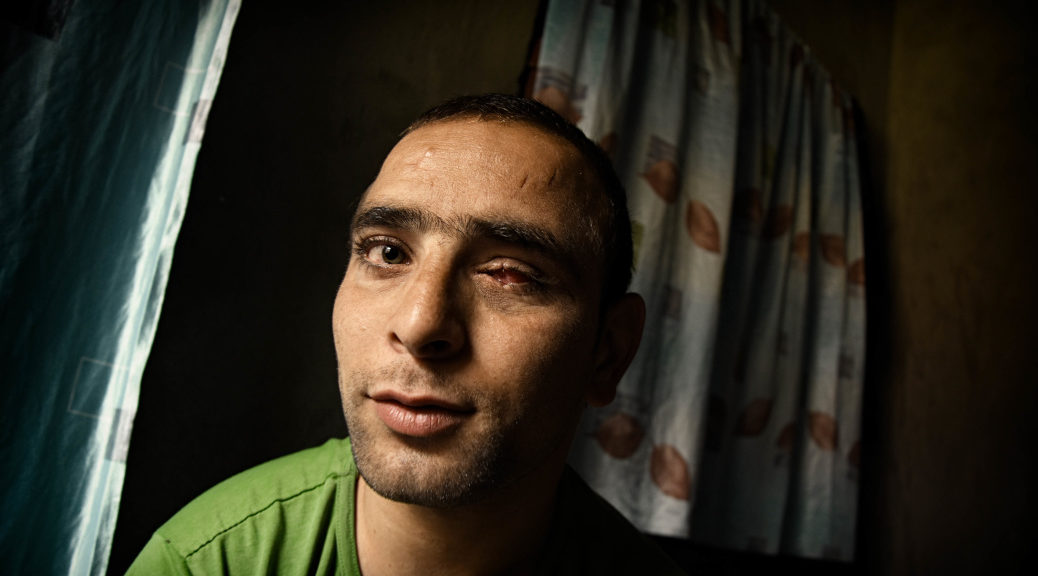Hiba Nisar was eighteen months old when she became the youngest casualty of the latest phase in the deadly, decades-long conflict in Kashmir. Last November, protesters clashed with Indian security forces outside her home in Kapran, a village in the south of the Muslim-majority state controlled by India but also claimed by Pakistan. As protesters pelted them with stones, Indian police fired tear gas, which began to seep into Hiba’s home. Hiba started to choke.
Her mother, Marsala Jan, grabbed her and opened the door, intent on getting her out of the smoke. “As I sneaked out, I heard a loud bang,” Jan recalls—the security forces had fired their shotguns. A spray of lead pellets ripped through the doorway. Jan had covered her daughter’s face with her hand, but a pellet went through her hand, she says, and into Hiba’s left eye.
Hiba was partially blinded. “Fate struck a terrible blow,” Jan says. “I held my child tight, but … I failed to protect her eye.”
Since 2010, Indian security forces have used pellet guns to deal with widespread protests in Kashmir, leading to the blinding, maiming, or killing of hundreds of people, according to human rights advocates and local medical personnel. While the term “pellet gun” brings to mind a children’s toy, the pellets—also known as birdshot—are metal and spray over a wide area. Most countries do not use them for crowd-control purposes because they cannot be aimed and thus cause indiscriminate injury.
- Follow us on Twitter: @inthefray
- Comment on stories or like us on Facebook
- Subscribe to our free email newsletter
- Send us your writing, photography, or artwork
- Republish our Creative Commons-licensed content

